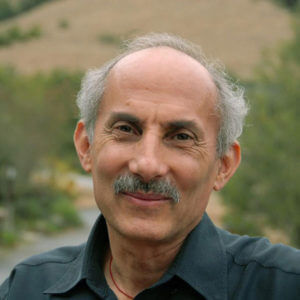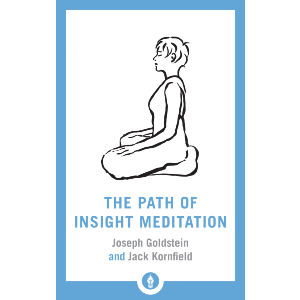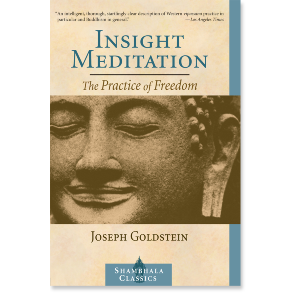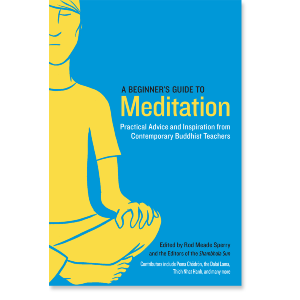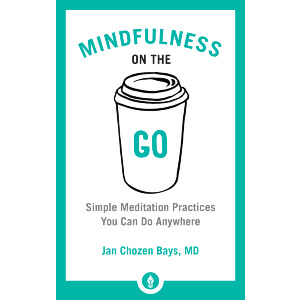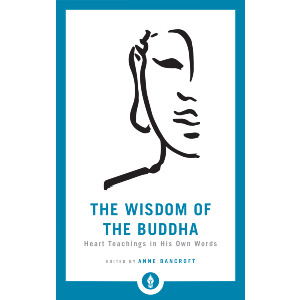The First Aspect: Conscious Conduct or Virtue
The first aspect, conscious conduct or virtue, means acting harmoniously and with care toward the life around us. For spiritual practice to develop, it is absolutely essential that we establish a basis of moral conduct in our lives. If we are engaged in actions that cause pain and conflict to ourselves and others, it is impossible for the mind to become settled, collected, and focused in meditation; it is impossible for the heart to open. To a mind grounded in unselfishness and truth, concentration and wisdom develop easily.
For spiritual practice to develop, it is absolutely essential that we establish a basis of moral conduct in our lives. If we are engaged in actions that cause pain and conflict to ourselves and others, it is impossible for the mind to become settled, collected, and focused in meditation; it is impossible for the heart to open.
The Buddha outlined five areas of basic morality that lead to a conscious life. These training precepts are given to all students who wish to follow the path of mindfulness. They are not given as absolute commandments; rather, they are practical guidelines to help us live in a more harmonious way and develop peace and power of mind. As we work with them, we discover that they are universal precepts that apply to any culture, in any time. They are a part of basic mindfulness practice and can be cultivated in our spiritual life.
The First Precept
The first precept is to refrain from killing. It means honoring all life, not acting out of hatred or aversion in such a way as to cause harm to any living creature. We work to develop a reverence and caring for life in all its forms. In the Eightfold Path this is called one aspect of right action.
Even though it sounds obvious, we still manage to forget it. There was a cartoon in the New Yorker magazine some years ago during the hunting season. One deer turns to the other and says, “Why don’t they thin their own goddamn herds?” We get into formulating excuses: “Well, there are too many deer.” As we become more conscious and connected with life, it becomes clear that we shouldn’t harm others, because it hurts us to kill. And they don’t like it; even the tiniest creatures don’t wish to die. So in practicing this precept we learn to stop creating pain for others and pain for ourselves.
The Second Precept
The second precept asks us to refrain from stealing, meaning not to take what is not ours. Not to steal is called basic nonharming. We need to let go of being greedy and not take too much. More positively, it means to use things with sensitivity and care, to develop our sense of sharing this life, this planet. To live, we need plants, we need animals, and we need insects. This whole world has to share its resources. It is a boat of a certain size with so many beings living on it. We’re connected with the bees and the insects and the earthworms. If there weren’t earthworms to aerate the soil, and if there weren’t bees to pollinate the crops, we’d starve. We need bees, we need insects. We’re all interwoven. If we can learn to love the earth, we can be happy whatever we do, with a happiness born of contentment. This is the source of genuine ecology. It’s a source of world peace, when we see that we’re not separate from the earth but that we all come out of it and are connected with one another. From this sense of connectedness we can commit ourselves to share, to live a life of helpfulness and generosity for the world. To cultivate generosity directly is another fundamental part of living a spiritual life. Like the training precepts and like our inner meditations, generosity can actually be practiced. With practice, its spirit forms our actions, and our hearts will grow stronger and lighter. It can lead us to new levels of letting go and great happiness. The Buddha emphasized the importance of generosity when he said, “If you knew what I know about the power of giving, you would not let a single meal pass without sharing it in some way.”
If we can learn to love the earth, we can be happy whatever we do, with a happiness born of contentment. This is the source of genuine ecology. It’s a source of world peace, when we see that we’re not separate from the earth but that we all come out of it and are connected with one another.
Traditionally there are described three kinds of giving, and we are encouraged to begin developing generosity at whatever level we find it arising in our heart. At first we find tentative giving. This is where we take an object and think, “Well, I’m probably not going to use this anyway. Maybe I should give it away. No, I should save it for next year. No, I’ll give it away.” Even this level is positive. It creates some joy for us and it helps someone else. It’s a sharing and a connecting.
The next level of generosity to discover is friendly giving. It’s like relating to a brother or sister. “Please share what I have; enjoy this as I do.” Sharing openly of our time, our energy, the things we have, feels even better. It’s lovely to do. The fact is that we do not need a lot of possessions to be happy. It is our relationship to this changing life that determines our happiness or sorrow. Happiness comes from the heart.
The third level of giving is kingly or queenly giving. It’s where we take something—our time or our energy or an object that is the best we have—and give it to someone happily and say, “Please, would you enjoy this too.” We give to the other person and take our joy in that sharing. This level of giving is a beautiful thing to learn.
As we start to learn to be more generous, to give more of our time, our energy, our goods, our money, we can find a way to do it not just to fit a self-image or please an external authority, but because it is a source of genuine happiness in our lives. Of course this doesn’t mean giving everything away. That would be excessive, because we have to be compassionate and care for ourselves as well. Yet to understand the power of practicing this kind of openness is very special. It is a privilege to be able to bring this generosity into our lives.
As we start to learn to be more generous, to give more of our time, our energy, our goods, our money, we can find a way to do it not just to fit a self-image or please an external authority, but because it is a source of genuine happiness in our lives.
The Third Precept
The third precept of conscious conduct is to refrain from false speech. The Eightfold Path calls this right speech. Don’t lie, it says. Speak only what is true and useful; speak wisely, responsibly, and appropriately. Right speech really poses a question. It asks us to be aware of how we actually use the energy of our words. We spend so much of our lives talking and analyzing and discussing and gossiping and planning. Most of this talk is not very conscious or aware. It is possible to use speech to become awake. We can be mindful of what we are doing when we speak, of what the motivation is and how we are feeling. We can also be mindful in listening. We can align our speech to the principles of what is truthful and what is most kind or helpful. In practicing mindfulness we can begin to understand and discover the power of speech.
Once a master was called to heal a sick child with a few words of prayer. A skeptic in the crowd observed it all and expressed doubts about such a superficial way of healing. The master turned to him and said, “You know nothing of these matters; you are an ignorant fool!” The skeptic became very upset. He turned red and shook with anger. Before he could gather himself to reply, however, the master spoke again, asking, “When one word has the power to make you hot and angry, why should not another word have the power to heal?”
Our speech is powerful. It can be destructive and enlightening, idle gossip or compassionate communication. We are asked to be mindful and let our speech come from the heart. When we speak what is true and helpful, people are attracted to us. To be mindful and honest makes our minds quieter and more open, our hearts happier and more peaceful.
The Fourth Precept
The fourth precept, to refrain from sexual misconduct, reminds us not to act out of sexual desire in such a way as to cause harm to another. It requires that we be responsible and honest in sexual relations. Sexual energy is very powerful. In these times of rapidly changing relationships and sexual values, we are asked to become conscious of our use of this power. If we associate this energy in our lives with grasping and greed, exploitation and compulsion, we will perform actions that bring harm to ourselves and others, such as adultery. There is great suffering consequent to these actions and great joy in the simplicity that comes in their absence.
The spirit of this precept asks us to look at the motivation behind our actions. To pay attention in this way allows us (as lay people) to discover how sexuality can be connected to the heart and how it can be an expression of love, caring, and genuine intimacy. We have almost all been fools at some time in our sexual life, and we have also used sex to try to touch what is beautiful, to touch another person deeply. Conscious sexuality is an essential part of living a mindful life.
To refrain from the heedless use of intoxicants is the fifth precept. It means to avoid taking intoxicants to the point of making the mind cloudy and to devote our lives instead to developing clarity and alertness. We have just one mind, so we must take care of it. In our country there are millions of alcoholics and others who have abused drugs. Their unconsciousness and fearful use of intoxicants has caused great pain to themselves, their families, and all those they touch. To live consciously is not easy—it means we often must face fears and pains that challenge our hearts. Abuse of intoxicants is clearly not the way.
To enter the human realm, to establish a ground for spiritual life, requires that we bring awareness to all the actions in our world, to our use of intoxicants, our speech, to all of our actions. Establishing a virtuous and harmonious relationship to the world brings ease and lightness to the heart and steadfast clarity to the mind. A foundation of virtue brings great happiness and liberation in itself and is the precondition for wise meditation. With it we can be conscious and not waste the extraordinary opportunity of a human birth, the opportunity to grow in compassion and true understanding in our life.
Establishing a virtuous and harmonious relationship to the world brings ease and lightness to the heart and steadfast clarity to the mind. A foundation of virtue brings great happiness and liberation in itself and is the precondition for wise meditation.
This has been excerpted from The Path of Insight Meditation.
Related Books
The Path of Insight Meditation
$12.95 - Paperback
$18.95 - Paperback
$16.95 - Paperback
A Beginner's Guide to Meditation
$19.95 - Paperback
$12.95 - Paperback
$12.95 - Paperback
